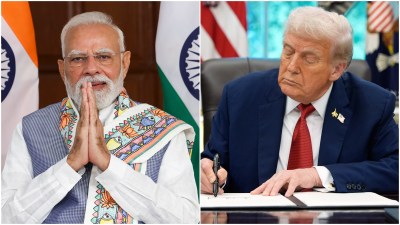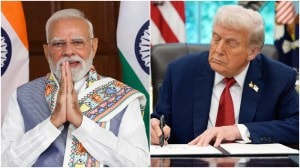Mystic Musings
Dr Stanislav Grof, pioneer in consciousness research, on the limits of science.

When someone around us is hearing voices, encountering extraterrestrials or ghosts, or experiencing some kind of intense mystical crisis, chances are that a conventional psychiatrist would diagnose a mental disease or psychosis. “Wrong,” says Dr Stanislav Grof, professor of psychology and one of the world pioneers in consciousness research. “Often, those episodes hold a powerful healing potential if understood and accompanied correctly. They are what we call a spiritual emergency.”
Grof, who was in Delhi last week, was born in Prague, Czechoslovakia. He emigrated to the United States in the 1960s, and led ground-breaking research using psychedelics as a tool for healing and transformation. Following his encounter with Swami Muktananda in India, he developed with his wife Christina breathing techniques that achieve similar results. As one of the founders of Transpersonal Psychology, his lifelong goal has been to bring together the best of science, psychology and spirituality. “In western science, spirituality is often equated with superstition or primitive thinking, and if people have spiritual experiences, they are considered as the manifestation of a serious mental illness. Traditional psychology also does not focus on what happened during the birth process, or in previous lives, or on ‘transpersonal’ realms — realities transcending the individual. Transpersonal psychology, on the other hand, uses the latest in consciousness research, psychedelic therapy, anthropology and ancient spiritual traditions, to enable healing.” Traumatic events of our childhood, our birth or from previous lives leave an imprint, like trapped energies that create emotional or physical blockages in our current life. Our consciousness somehow managed to ‘forget’ those traumas. But by revisiting them, thanks to a breathing technique, for instance, we can release those energies. In those moments, the patient can see and hear more, like psychics would.
What struck Grof as an interesting coincidence was the parallel between the timing and the content of those experiences, and the planetary transits in the charts of the person experiencing them. Spiritual transformation seems to happen at the transit time of one of the three outer planets, Neptune, Uranus or Pluto.
As astrology emphasises the importance of the place of birth, are there particular neuroses in India? “I don’t know enough,” confesses Grof, “but my guess would be that for so many people living in basic survival, neurosis would be a luxury. They describe three situations with no neurosis: concentration camps, whaling ships and the foreign legion. Neurosis only starts to appear when the basic needs are covered.”




- 01
- 02
- 03
- 04
- 05


























